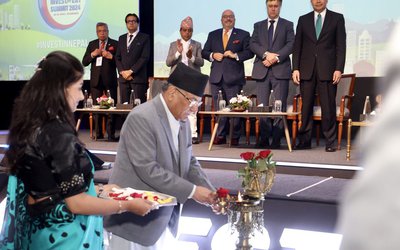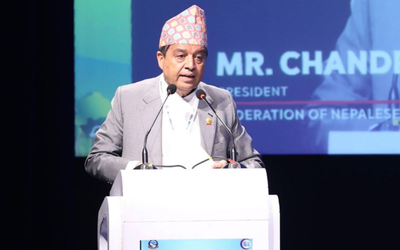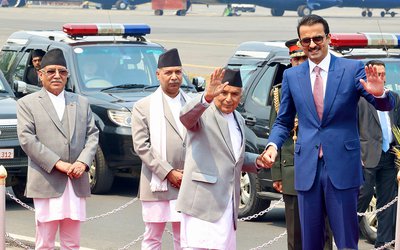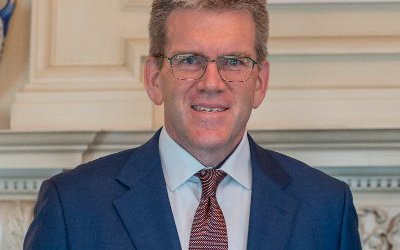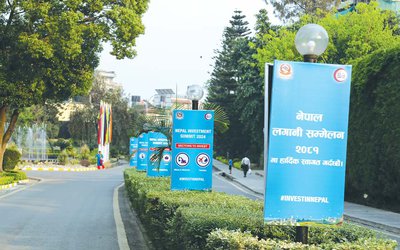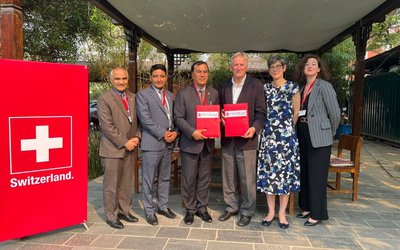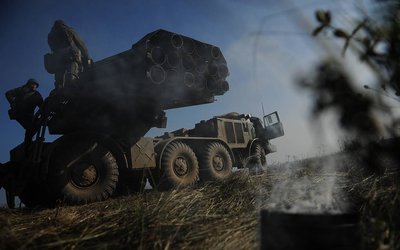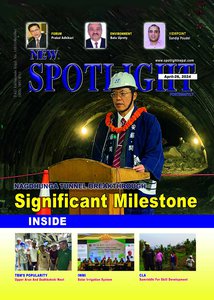Despite the five-party alliance winning most seats and Nepali Congress(NC) emerging as the largest party in the House of Representatives and its President Deuba seen almost on the verge of becoming Prime Minister for the sixth time, last minute decision of Prachanda to break the alliance and side with Oli deprived Deuba and NC of countless opportunities . This ostensibly sudden and dramatic move is also said to have deprived very senior NC leader Ramachandra Poudyal of the opportunity to become President of Nepal. It was said that Maoist Chair had made up his mind to support Poudyal for the post of President provided NC agreed to let him become the Prime Minister first. The Deubas’ refusal, despite some NC leaders’ suggestion not to do so, did not take much time for Parchand to move towards Oli who was doing serious homework to rope in influential leaders of different parties including the Maoist Chief.Indeed,UMl Chief Oli was desperately waiting to extend a red-carpet welcome to Prachanda and the two adversaries wasted not much time in becoming political friends one more time, announcing formation of a new alliance and that the government to be formed would be headed by the Chair of the Maoist Centre. Post-election scenario was very fluid with news of meetings happening between leaders of different parties and serious differences and disputes amongst leaders both at the inter and intra party level. People were in know of talks between Oli and senior leaders of Maoist Centre and the possibility of NC and UML joining hands to form a government was also not completely ruled out. It was very well known that while Prachanda was having several rounds of meeting with Prime Minister Deuba ,some senior Maoist leaders were engaged in serious dialogue with Oli.As expected by many, the five-party electoral alliance fell apart. It is very difficult to say what made Deuba become so confident that Prachanda and Oli could never come together and no one can stop NC/him from heading the next government. Oli’s success in roping in a large number of elected member of the HOR representing different parties,Parchanda’s flexibility\alertness and Deuba’s greed and inappropriate assessment of the prevailing political fluidity, created a new political equation, throwing buckets of ice-cold water on Deuba on chilling winter days of December 2022.Deuba was clearly outsmarted by Oli as a result of which NC not only failed to form a government in Kathmandu but also in provinces where it would have been adequately represented had the alliance with Prachanda not broken. In addition, the party also lost the opportunity of having its lion’s share in appointments of its followers to different attractive positions. This colossal loss of opportunity has understandably angered NC well-wishers, who find Deuba’s self-centered acts as the reasons for the uncomfortable situation that the party got in.More than blaming Prachanda, NC leaders and followers held Deuba’s rigid miscalculated stance and greed for power for the creation of this unpleasant situation.Further,with leaders, especially those belonging to Shekhar Koirala faction, openly criticizing Deuba for not being able to retain the five-party alliance, it seemed NC president would have tough time in the party and would have very little to put forth in defense of his acts.Surprisingly,however,Deuba did not remain quite for long and began to make moves.
Deuba started by assuring his followers that NC would soon come back to power and also advised them not to offend Prachanda much. He was probably not wrong in seeing the possibility of Prachanda, who abandoned him breaking the five-party alliance, getting back to him over time, leaving the seven-party alliance.NC followers and many observers in the beginning took Deuba’s utterances nothing more than an attempt to assuage their anger but people became little serious when he decided to give the vote of confidence to Prachanda. Albeit controversial, NC’s decision to vote in favour of confidence motion on January 10 drew serious attention of many people including Oli who observed that NC was trying to create a rift in the seven-party alliance. Indeed, a shift in Prachanda’s stance on some important issues such as election of the new president and reported differences with Oli pertaining to inclusion in the Cabinet of some politicians have begun to attract serious attention of people.Deuba and Dahal seem to be rightfully thinking that concentrating major power in the hands of one party (Oli-led UML) could be fearfully risky. Moreover, Dahal is not wrong in believing that if both posts (speaker and president) went to the UML, it would be difficult for him to run the government. Ouster of Rabi Lamichhane as home minister, whose election to the HOR was invalidated by the Supreme Court on citizenship issue, and his party’s decision to quit the government seem to have further widened the differences between the two alliance leaders. While Oli was totally in favour of getting Rabi back to his original position in the government after the issuance of citizenship certificate to him, Prime Minister Dahal maintained that he should remain out pending resolution of some other issues legally registered against him. It would be interesting to see whether the two top leaders will remain solidly behind him in his bid to get reelected from Chitawan- 2 where by-election will be held soon.Deuba-led NC has also succeeded in bringing down the UML-led government in Far West, using Nagarik Unmukti Party (NUP) lawmakers who did not support the confidence motion placed by the government there. An NC –led government is in place there but nobody can say how long this government will continue because the current alliance seems to be doing everything possible to placate NUP leaders. A six-month jail term imposed on one of LUP federal lawmakers who was found guilty of setting ablaze a tractor years ago but was absconding until February 2 when he was finally arrested, has been waived off. It would be interesting to see the winner in this political game at Kailali. Beyond doubt, political situation in the country has continued to remain instable and the trio’s (Deuba,Oli and Prachanda) post-election acts seem to have contributed towards enhancing political fluidity. The major beneficiary of this political chaos has been Deuba who has not only succeeded in quietening his opponents within the party but has made considerable headway in bringing Prachanda back to him. A master manipulator, Deuba, cannot be behind the other two, which is shown by his untiring efforts to push the two adversaries-turned-friends apart. People have no serious objection to these very familiar moves but their only prayer to these great leaders of our country is that their moves should not be at the cost of our ailing economy and wellbeing of people of Nepal.
Like in other parts of the world, high cost of living have inflicted injury on people of Nepal, too but unlike people elsewhere Nepalis have not taken to the street in protest. Not even an iota of improvement is seen in the economy as the current dispensation has not been able to arrest its deterioration. Revenue generated was not able to meet the recurrent expenditure towards the end of Deuba’s fifth stint as prime minister, which is still continuing. According to information available from the Auditor General’s Office, government expenditure has exceeded income by more than Rs. 100 billion. Likewise, actual flow of foreign loan and grant has also remained unsatisfactory. Against a foreign loan and grant target of about Rs.298 billion, only 11.61 percent of it has been actualized in the six months of this fiscal year.
Finance Minister Bishnu Poudyal has confessed that the economy, which he inherited some two months ago, is not in good shape and the targets set on different fronts by the earlier government are unachievable. Through the mid-term review, he reduced the budget size for the current fiscal year by 14 percent. Primary allocation on recurrent and capital expenditure has been trimmed to Rs.1021.92 billion and Rs.313.5 billion, respectively. Realizing the negative impact on revenue collection of import regulation and economic slowdown, revenue collection target of Rs.1403 billion has also been slashed to Rs.1244 billion. This act of Poudyal is not unusual in that his predecessors also took the liberty of slashing the budgetary targets during half yearly reviews, but the huge cut this time has caused concern that Poudyal should have put all his efforts into budget execution instead of going for this kind of slash. Hope he is not just trying to play safe, trimming targets fixed earlier and does not repeat the mistake of his predecessor (Janardan Sharma) who wasted lots of time formulating and getting the replacement bill passed by the House. All of us are unanimous that Nepal has to embark upon a steady process of reducing our fearful trade deficit, which can be effected through increasing internal production, starting with basic items such as edibles the production of which can be substantially increased in the very short run. Production, however, could decline in a situation where farmers are seen at different places throwing their produces on roads due to lack of market. However paradoxical it may sound, the existing reality is that farmers are offered prices that do not even cover the cost of production of their produces and consumers in urban areas have to pay exorbitant prices for the same.
The Duo (Prachanda,Poudyal) may wish to pay some attention to different provisions that Government of India has made in its federal budget for the year 2023\2024,which was made public on February 1,2023.The point of concern for us should be that the budget has made encouraging provisions for small and medium enterprises and more than 100 million farmers will be given Rs. 2.2 lakh crores cash grant, which will contribute towards making produces there all the more cheaper. If timely measures are not initiated in Nepal, land under agricultural crops will further decrease and reliance on import to meet our consumption requirement will further accelerate. Leaders of this country have more important things to pay attention to and they are seen engaged in making moves and counter moves, currently focusing on president election, to protect their interest. It should, however, not be too much to expect Bishnu Poudyal to find time to immediately do something to ameliorate the condition of relief-seeking farmers and consumers. You do not have the luxury of time.

Dr. Tilak Rawal
Dr. Rawal is former governor of NRB.
- Prachanda Outsmarts Again
- Apr 14, 2024
- Prachanda Completes One Year
- Jan 26, 2024
- Terrible Times To Continue
- Oct 12, 2023
- Budgets Of Nepal
- Jun 09, 2023
- Perpetual Instability
- Dec 10, 2022

